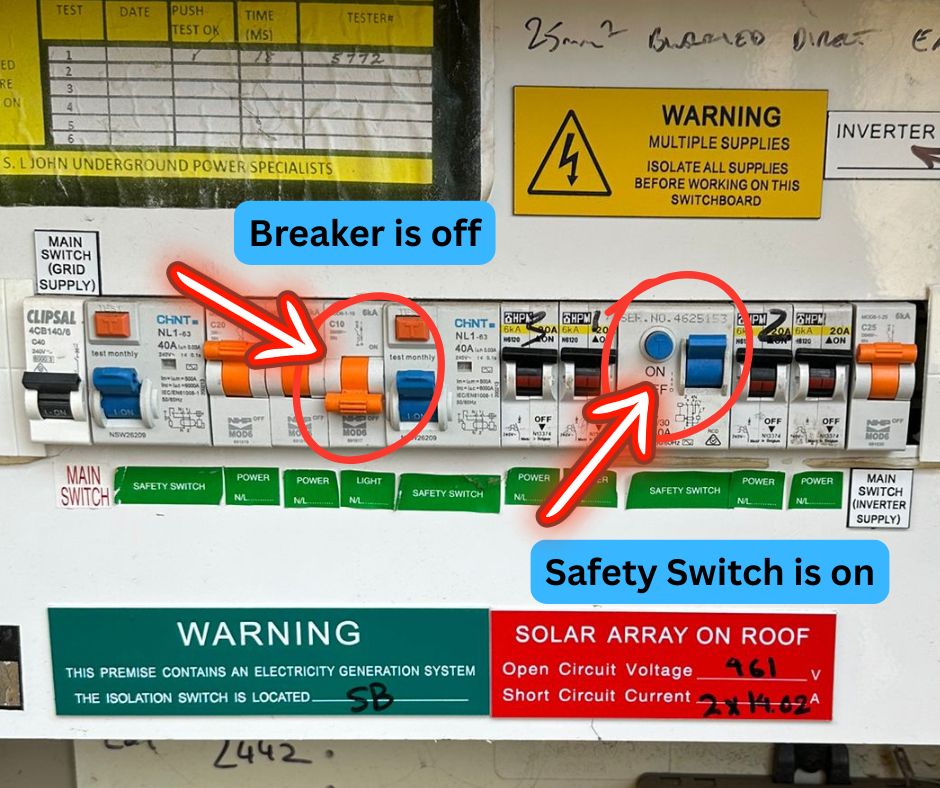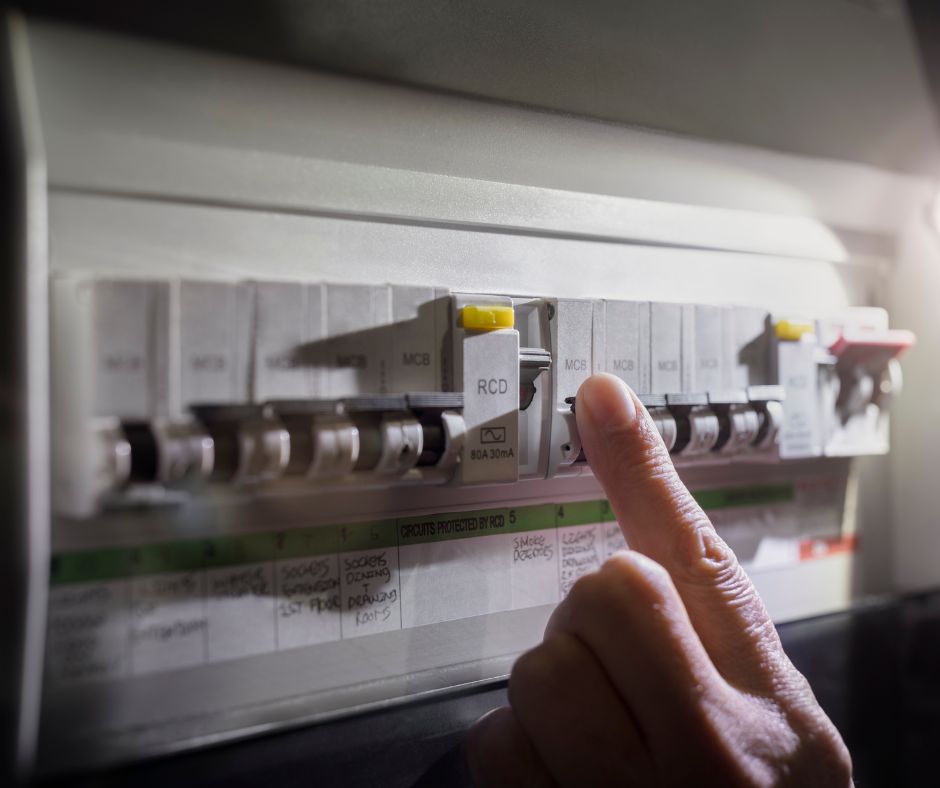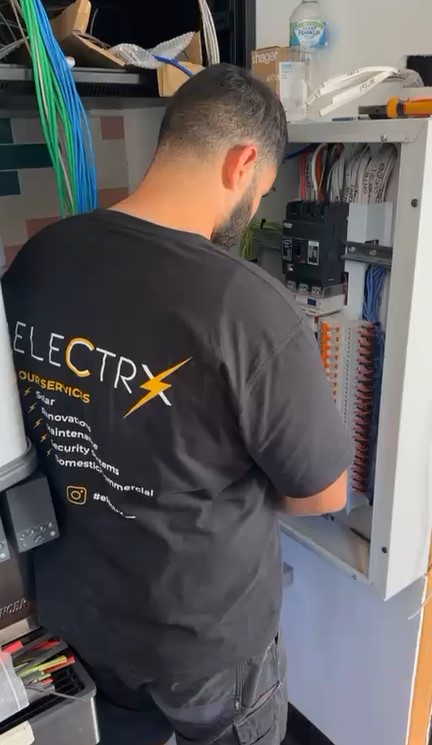Uncover the Key Reasons Behind Your Circuit Breaker Frequently Tripping
Experiencing a circuit breaker that trips often is more than just a nuisance; it serves a crucial function in safeguarding your home from dangerous electrical faults. This persistent issue is frequently attributable to several prevalent factors, including overloaded circuits, short circuits, defective appliances, or hidden wiring issues. If you find your breaker tripping consistently, it’s essential to diagnose the fundamental problem and seek the expertise of a qualified electrician to perform necessary repairs. This proactive approach will not only ensure the safety of your living environment but also restore the functionality of your home’s electrical system.

Step-by-Step Guide to Diagnosing the Causes of Circuit Breaker Tripping
When your circuit breaker shuts off immediately after being reset, this indicates a significant issue within your electrical system. The breaker is fulfilling its protective role by cutting off the power supply to avoid potential hazards or more severe complications. Addressing these issues without delay is crucial for ensuring the safety of your electrical setup while preventing any further complications that could arise from neglect.
Homeowners in areas like Werribee, Altona, and Point Cook frequently reach out to us regarding this troubling issue. While it can be quite disruptive, persistent tripping often serves as an early warning sign of more serious electrical problems that could become dangerous if not addressed promptly.
This article will delve into the various root causes of circuit breaker tripping, provide actionable troubleshooting steps you can take, and explain how Electrx can effectively resolve these electrical challenges with expertise.
In-Depth Understanding of Circuit Breakers and Their Protective Functions
Circuit breakers are essential automatic safety devices that protect your home by interrupting electrical flow under specific conditions, such as:
- When an excessive current flows through a circuit, resulting in an overload situation that can cause damage.
- In instances of short circuits that could lead to dangerous electrical faults and fires.
- When there is power leakage to the ground, indicating an earth fault that poses a risk.
- If the breaker itself is malfunctioning or approaching the end of its lifespan.
Unlike traditional fuses, circuit breakers respond more swiftly to potential threats. They provide a superior safety mechanism that doesn’t rely on melting wires to stop current flow, thereby ensuring a safer environment for your family and protecting your home from electrical disasters.
Diagnosing Why Your Circuit Breaker Keeps Tripping Immediately After Resetting
If you find yourself constantly resetting the circuit breaker, only to see it trip again almost immediately, this is a clear indication that there is an active fault in that specific circuit. Understanding the common causes behind this recurring issue can significantly aid you in diagnosing the problem effectively.
The main issues that typically lead to this frustrating scenario include:
Recognizing Overloaded Circuits: A Common Electrical Hazard
Overloaded circuits are a prevalent electrical concern, particularly when multiple high-draw devices such as kettles, toasters, or heaters are used simultaneously on the same circuit. The combined load can quickly surpass the safe capacity, triggering the circuit breaker to trip as a protective measure against overheating and the associated fire hazards that could threaten your home.
Evaluating the Impact of Faulty Appliances on Your Circuit Breaker
In many cases, the source of the problem may not lie within the wiring itself, but rather within the devices connected to the circuit. Appliances such as heaters, older refrigerators, and dryers are often guilty of causing issues; internal faults within these devices can result in short circuits or current leaks, leading the breaker to trip unexpectedly and potentially creating dangerous conditions.
The Dangers Associated with Short Circuits: Causes and Prevention
Short circuits occur when damaged wiring, rodent infestations, or crushed insulation allow live wires to make contact with ground or neutral wires directly. This dangerous condition can cause the circuit breaker to trip rapidly to avert hazardous outcomes that could jeopardize your property and personal safety. Understanding the causes can help you take preventive measures.
Understanding Earth Leakage: Causes and Its Impact on Your Electrical System
Moisture intrusion in outdoor outlets, garden lighting installations, or under-house cabling can create conditions that facilitate current leakage into the ground. This scenario can cause Residual Current Devices (RCDs) to trip as a precautionary measure, ensuring the safety of your electrical system while preventing potentially dangerous situations that could arise from unnoticed leakage.

Essential Actions to Take When Your Circuit Breaker Trips
- Unplug all devices connected to the outlets on the affected circuit to remove any potential overload sources.
- Reset the circuit breaker by flipping it back to the ‘on’ position to restore power.
- If the breaker remains active, start plugging your devices back in one at a time to identify the culprit causing the problem.
- When the breaker trips again, you will have successfully pinpointed the faulty device requiring further inspection or replacement.
- If the breaker continues to trip even with no devices connected, it’s crucial to contact our team for professional assistance.
Utilize our Fault Finding Service for a comprehensive and prompt diagnosis of your electrical issues, ensuring your safety and peace of mind while maintaining the integrity of your home.
Recognizing When to Stop Resetting Your Circuit Breaker
If your circuit breaker frequently trips or fails to reset altogether, you should observe the following precautions:
- Do not keep resetting the breaker—this can impose excessive stress on the entire electrical system, leading to further complications and potential damage.
- Avoid swapping breakers between different circuits, as this practice may introduce additional problems and safety hazards.
- Do not attempt to replace the breaker yourself—this action not only violates the law but also presents significant safety risks to you and your household.
We have encountered numerous instances where DIY resets have led to damaged boards or even catastrophic house fires. Trust our experienced professionals to safely and effectively trace the underlying problem and provide a dependable solution that ensures your home’s electrical safety.
What to Expect from Electrx When We Resolve Your Circuit Breaker Issues
When our dedicated team at Electrx responds to a reported circuit breaker fault, we undertake a thorough assessment that includes:
- Testing the circuit using specialized clamp meters and insulation testers to verify safety and reliability.
- Inspecting all outlets, fittings, and switchboard connections for any signs of irregularities or wear that may indicate potential issues.
- Examining appliances that may contribute to the fault for hidden internal problems that need addressing.
- Replacing the circuit breaker or RCD if we determine it has failed during our comprehensive assessment.
- Repairing any damaged cabling or terminals that pose a safety risk to your electrical system, ensuring long-term reliability.
- Issuing a Certificate of Electrical Safety upon the successful completion of our work, confirming compliance with all safety standards.
If your switchboard is outdated or lacks adequate safety switches, we may also recommend a Switchboard Upgrade to enhance your safety standards and provide effective protection for your home.
The Lifespan of Circuit Breakers: Recognizing Signs of Failure
Circuit breakers, like any mechanical device, have a limited lifespan. If your breaker is tripping excessively or does not reset smoothly, this may signal a fault that necessitates immediate attention.
Signs that your circuit breaker may be nearing failure include:
- Feeling hot or loose to the touch, indicating potential overheating and risk of failure.
- Tripping without any apparent cause, suggesting underlying issues that need addressing.
- Requiring significant effort to reset, which is a clear indication of malfunction.
- Flipping even when no load is connected, pointing to possible internal faults that must be diagnosed.
We maintain a selection of modern, compliant replacements readily available and can promptly replace faulty breakers to ensure the safety and reliability of your electrical system, protecting your home and family.

Frequently Asked Questions About Circuit Breaker Issues
Can I legally replace my circuit breaker myself?
No, according to Victorian law, only a licensed electrician is authorized to safely and legally replace circuit breakers in residential settings to ensure safety and compliance.
Why does my circuit breaker trip when I operate the heater?
Heaters typically draw a substantial amount of current. If they share a circuit with other high-power devices, this can lead to an overload situation, causing the breaker to trip as a protective measure to prevent overheating.
Can a faulty outlet cause my circuit breaker to trip?
Yes, damaged or melted outlets can short internally, leading to the breaker tripping each time the circuit is energized, creating hazardous conditions that require immediate attention.
Is this a situation that requires immediate attention?
Absolutely, particularly if the breaker fails to reset, affects critical appliances, or exhibits signs of burning or overheating that could pose serious risks to safety.
Final Insights on Circuit Breaker Problems and Their Effective Solutions
When circuit breakers trip, it’s crucial to recognize that they do so for specific reasons. If your breaker fails to remain reset, it is imperative not to overlook this warning, as the underlying issue may lie within your wiring, appliances, or the switchboard. Electrx is fully equipped to swiftly identify and resolve these concerns.
We will handle all necessary repairs to ensure your system operates safely and reliably, maintaining optimal performance for your peace of mind.
Contact us today for expert assistance with Melbourne Switchboards and all your electrical needs.
Circuit Breaker Keeps Tripping or Won’t Stay Up? Here’s What It Means
The Article: Circuit Breaker Tripping? Discover What It Means first appeared on https://writebuff.com
The Article Circuit Breaker Tripping Explained: What You Need to Know Was Found On https://limitsofstrategy.com


